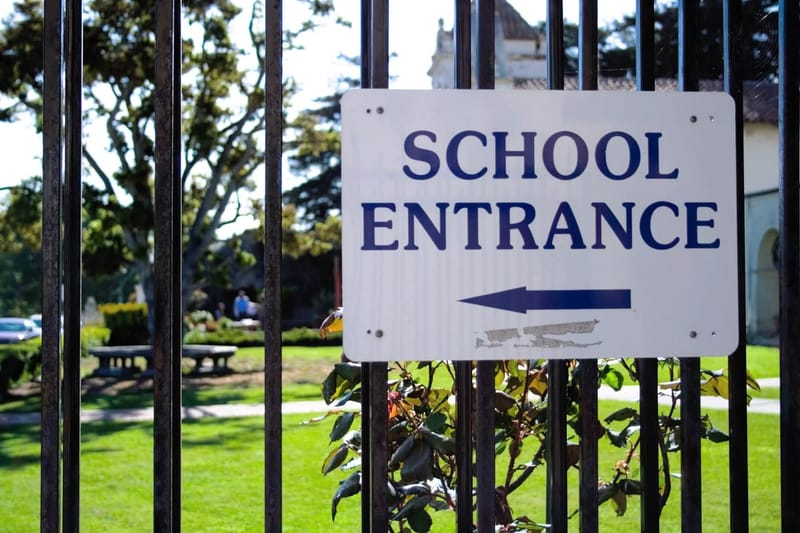
The recent furore surrounding students being offered entry into initial teacher education programs with low ATAR ranks isn’t as simple as it sounds. Nor is all the reporting accurate.
It’s time to provide some clarity about entry into initial teacher education programs so that we’re assured of the quality of our new teachers. The details provided here use Victoria as the context and Monash University specifically as the example.
To be selected into an initial teacher education program, applicants must be judged on academic and non-academic qualities. For academic qualities, the ATAR (Australian Tertiary Admission Rank) is often used for school leavers, while for non-school leavers, other factors such as VET and higher education studies they’ve undertaken are also considered.
So, an ATAR is only used when a school leaver is applying for an initial teacher education program.
What is an ATAR?
This is the rank given to all students who’ve successfully completed VCE in Victoria and satisfied the minimum tertiary entrance requirements. It’s based on converting students’ aggregate score (see www.vtac.edu.au/results-offers/atar-explained.html) in VCE to a rank between 99.95 down to 0.00 using 0.05 increments. A student with an ATAR of 80.00 means that you are 20 per cent from the top of your Year 7 group.
The relevance of the ATAR as an indicator of academic ability may be questioned. It ranks a student against all of those who started in Year 7 with them. It doesn’t say anything about what subjects they studied or what they excelled at. It only states what they scored in comparison to others in their cohort.
The only required study for students is that they’ve studied at least one of English, English Language Literature or English as an Additional Language (EAL).
This is also why other academic achievements are considered for those applicants who have studied beyond VCE, because what they’ve studied and the level of their achievement gives greater insights into their academic qualities.
Research has shown that there are other factors that impact on student academic achievement, such as studying in a socially or financially disadvantaged situation or a rural or remote situation; having a disability, medical condition or being in difficult circumstances; or if you’re an Indigenous Australian or a mature-aged student.

These factors are considered (and must be supported independently of each other) by each provider of initial teacher education programs through a scheme known as Special Entry Access Scheme (SEAS).
Each initial teacher education provider has a set of rules, and at Monash these include being an Australian or New Zealand citizen, holding an Australian permanent resident or permanent humanitarian visa, and evidence to support your claims in the factors you’re claiming apply to you.
Based on these categories, aggregate points that add to your VCE score are awarded and your ATAR rank is recalculated, and is now called an adjusted ATAR. A maximum of 20 aggregate points (or up to 10 ATAR points) can be awarded.
Minimum academic requirements in Victoria and for Monash
The Victorian government has applied a minimum ATAR score in 2018 of 65 (adjusted ATAR score), which will rise to 70 in 2019.
In addition, Monash has applied its own academic requirements of a minimum adjusted ATAR of 70.00 in all of its bachelor courses and a minimum English language requirement.
For Monash University’s Bachelor of Education (Honours), applicants must have reached a study score of 30 in Units 3 and 4 English as an Additional Language (EAL) or 25 in English other than EAL, and also have satisfactorily completed Units 1 and 2 (any combination) of general mathematics, mathematical methods or specialist mathematics, or Units 3 and 4 of any mathematics.
In 2018, Monash’s Faculty of Education school leaver academic selection results included a highest ATAR selection rank of 99.30, a median of 90.25 and a lowest of 75.15, putting all selected students in to top 25 per cent of their Year 7 cohort. It must be remembered, however, that not all applicants are school leavers and indeed have qualifications beyond Year 12.
Non-academic qualities
Anyone can learn, but not everyone can teach. You need to have special qualities to be a teacher – strong interpersonal and communication skills, a willingness to learn, resilience and a strong belief in your ability to succeed in situations and tasks, be conscientious and, above all, motivated to teach.
At Monash, we’ve used a video-based situation tool, CASPer, where you’re asked to make judgements about situations you may encounter every day. These situations aren’t something you can study for, but rather are independent of your academic abilities and reflect your personal qualities.
LANTITE
The Australian government requires every initial teacher education graduate to have reached a standard of personal literacy and numeracy that places them in the top 30 per cent of the Australian adult population.
They check if this standard has been met by requiring all graduates to undertake the Literacy and Numeracy Test in Initial Teacher Education – LANTITE. This test is specific to the Australian context in using your personal literacy and numeracy skills.
At Monash, we don’t want to have students study a four-year course in Education if they can’t meet this standard. It’s for these reasons that we ask all our students to have met this standard in the first year of their study as a requirement, and support them to do so.
It’s important to realise that the selection of students and the course of study undertaken in initial teacher education programs is highly regulated.
It’s important to realise that the selection of students and the course of study undertaken in initial teacher education programs is highly regulated; every program must be accredited in meeting the Australian Initial Teacher Education Program Standards.
While there may be pathways into initial teacher education programs, they’re not programs that allow their graduates to become registered teachers. Much of the reporting of ATARs has not been for initial teacher education programs, but rather education programs generally. This is an important distinction.
Additionally, the reporting of ATARs in the press has included instances where the ATAR has not been the basis of selection, as the applicants have undertaken further study such as in TAFE and other providers.
In outlining the selection process in Victoria generally and specifically for Monash, I’m confident in the academic and non-academic qualities and abilities of our students moving into such a personally rewarding profession.
Professor Deborah Corrigan is also a council member at the Victorian Institute of Teaching.
Monash University Faculty of Education is home to Education Futures, an innovative think tank that undertakes cutting edge translational research, conducts roundtables, forums and other events for educators and policy makers, and regularly publishes ‘thought leadership’ pieces in current and future priority areas of educational practice.





